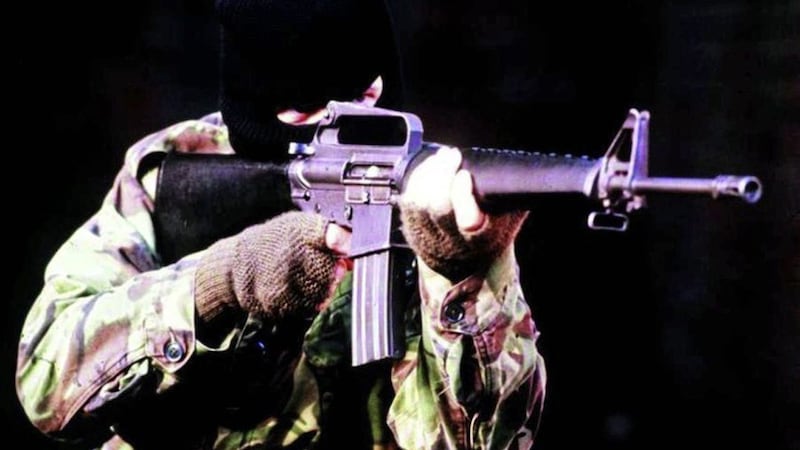‘The past and present are always in dialogue – there can hardly be history without revisionism.’ So said Hilary Mantel in a recent interview, of her novels on Thomas Cromwell, Henry VIII’s fixer. She could have been talking about recent history here.
Consideration of the Troubles in this 50th year since they properly began – their origins excavated again by the BBCNI’s Spotlight in ‘The Troubles – A Secret History’, now two episodes in - is of course splitting opinion. If agreement existed on what sustained those horrible years there would have been no Troubles in the first place.
Portraying the murky, dangerous world of Tudor England as Hilary Mantel does has meant, she says, engaging with history as ‘a process, not a locked box with a collection of facts inside.’ Serious academic historians respect her combination of research and imagination. Readers can simply go along for the sense of emotions 500 years ago, where people concealed their true beliefs for fear of their lives but despite their subterfuges often died hideously.
The pain of history nearer to us is very sharp. Memories like grit in the eyes spoil fiction about the Troubles for many, but some documentaries demand to be watched. ‘We knew that already!’ say the unimpressed, some of whom turn out to be the most invested in self-pleasing versions of events. Spotlight began this series with dysfunctional, discriminatory Stormont, then neatly paired formative times for the late Reverend Ian Paisley and the late Martin McGuinness. The professionally unimpressed would not or could not admit this was fair, or worth televising. To salvage their own hero’s image both depictions had to be rubbished.
‘Sure we knew about Paisley and paramilitaries!’ Never mind that few if any knew that the RUC Special Branch of the time believed Paisley funded UVF bombing, as a retired British officer told the programme. The present Ian Paisley stormed to his father’s defence, with remarkably little vocal support. Republican memory-custodians, meanwhile, downgraded the Paisley story as though that would blur the sight of the young McGuinness overseeing car-bombs, showing children bullets. Long-lost American footage of the boyish hero unloading a gun for goggle-eyed children nonetheless shocked more than one household, and disgusted more than unionists.
Everybody, said the begrudgers, knows all that already. Why the big deal of McGuinness the IRA-leader?
Everyone knows that McGuinness the peacemaker was able to sell power-sharing with Paisley precisely because of his history as the cold-eyed IRA boss. In more than one Catholic home, more than one teenager said ‘I didn’t know that’, and said it with dismay.
In the Twitter-sphere, where pretend-reflection rants away among like minds, republican resentment cannot be appeased. In truth the major objection is to documentaries noting, almost in passing, that the IRA killed most. But that complaint has to be disguised.
Those least able to watch our recent past on television screens dispassionately are sometimes lying to themselves and those around them. Others are bewildered, horrified, seeing things they have never heard of or been told only in distorted form. What ‘everybody knows’ of our history is abysmally little. Rarely well-taught, history has now withered in school timetables.
Much is still unknown as well as disputed but documents and personal recollections throw some light on those chaotic early years. Spotlight did the spadework, choreographed results with judgment and sensitivity, and noted unrecorded victims. Ex-IRA volunteer Tommy Gorman asked ‘What the f*** was it all about?’ and dissolved into tears. Moments later the second episode closed with the surviving ‘Feakle’ clergyman remembering how the UDA forced his family to emigrate. The programme ended as he put a shaking hand to his head in the stress of recalling the threat. His wife asked: ‘Are you all right, love?’
The most partisan want hero-worship. Only praise satisfies them. That is not history.
::The Troubles – A Secret History, episode 3 of 7, is on BBC Four tonight at 9pm.








